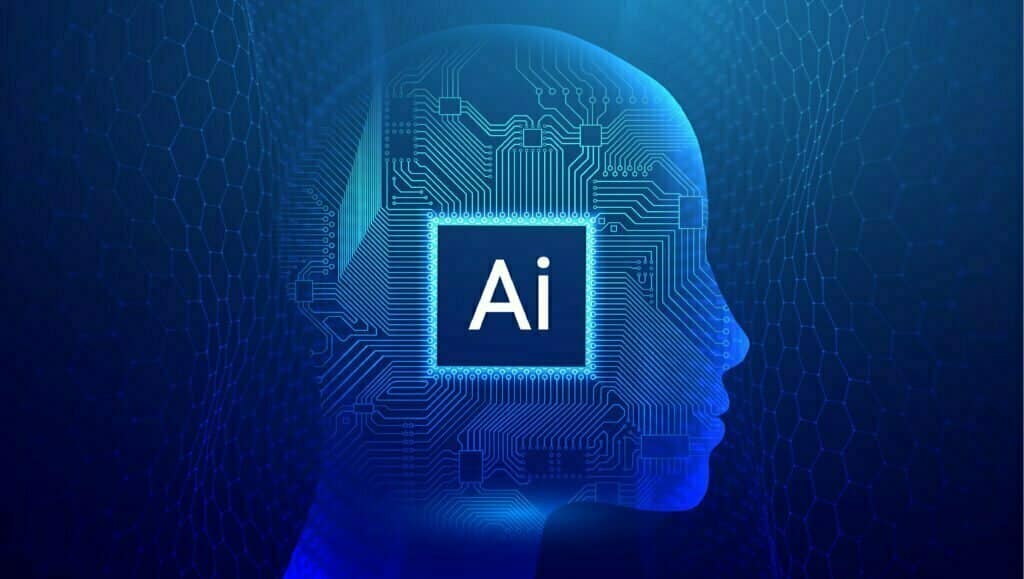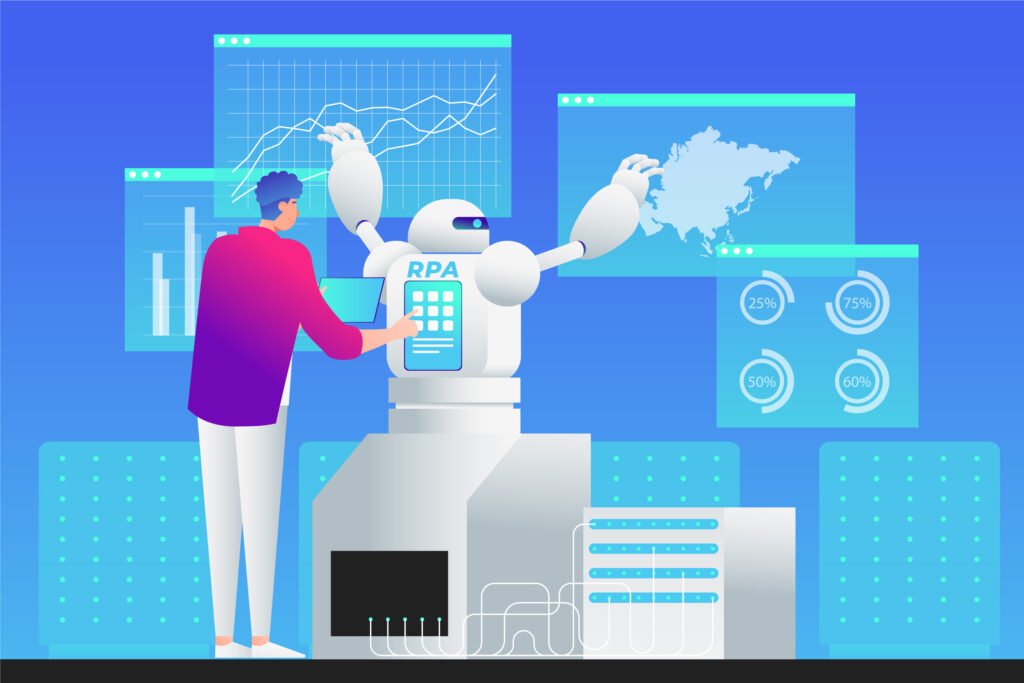Artificial Intelligence (AI) is rapidly transforming the business landscape, with the potential to revolutionize how we work and scale our businesses. AI solutions can automate complex tasks, provide insights and predictions, and enhance the customer experience, resulting in increased efficiency, cost savings, and competitive advantage.
Various AI solutions can be leveraged to scale a business, including Natural Language Processing (NLP), Computer Vision, Predictive Analytics, Machine Learning, and Robotics. In this blog, we will explore these solutions in detail and examine the benefits and challenges of implementing them in a business setting.

Role of AI in business
Artificial Intelligence (AI) can transform how businesses operate across multiple industries. AI involves the development of computer systems that can perform tasks that would typically require human intelligence.
Many banks and credit card companies are using AI to detect fraudulent activity, such as credit card fraud, by analyzing large datasets and identifying patterns that indicate fraudulent behavior. This has helped to reduce losses and protect customers from fraud.
In addition, companies like Spotify and Pandora use AI to personalize their music recommendations for users based on their listening habits. This has led to increased engagement and customer satisfaction.
AI can also be used in computer vision applications. For instance, in the manufacturing industry, AI-powered cameras can detect and alert workers to defects on the production line, improving quality control processes.
These are just a few examples of how AI is being used in business. As AI technology continues to evolve, we can expect to see even more innovative applications in the future.

Benefits of AI in business
Artificial Intelligence (AI) offers numerous benefits to businesses across various industries. Here are some of the most significant benefits of AI in business:
- Increased Efficiency: AI solutions can automate repetitive and time-consuming tasks, freeing employees to focus on higher-level tasks. It can lead to increased productivity and cost savings for the business.
- Enhanced Customer Experience: AI-powered chatbots can provide 24/7 customer service, helping customers quickly resolve issues and improving customer satisfaction. AI can also personalize the customer experience, providing relevant product recommendations and targeted marketing campaigns.
- Better Decision Making: AI-powered predictive analytics can analyze large amounts of data and provide insights and predictions, helping businesses make informed decisions and stay ahead of the competition.
- Improved Operational Efficiency: AI-powered systems can optimize processes such as inventory management, supply chain management, and quality control, leading to cost savings and increased efficiency.
- Competitive Advantage: By leveraging AI solutions, businesses can gain a competitive advantage, improving their products and services and positioning themselves as leaders in their respective industries.

Key types of AI solutions for businesses
Several types of artificial intelligence (AI) can be applied to businesses. Here are some of the most common types of AI in business and examples of their applications:
- Natural Language Processing (NLP): NLP is a type of AI solution allowing computers to understand and process human language. It is commonly used in virtual assistants, where it can help businesses answer customer inquiries and provide information about products and services.
- Machine Learning (ML): ML allows computer systems to learn and improve from experience without being explicitly programmed. Businesses can use ML for analytics to forecast trends, optimize inventory, and improve supply chain management.
- Computer Vision (CV): Computer Vision is an AI solution that helps computers to interpret and analyze visual data, such as images and videos. CV can be used in business for quality control in manufacturing and analyzing customer behavior in retail settings.
- Robotics: Robotics involves the development of physical machines using AI algorithms that can perform tasks that typically require human intelligence. In business, robotics can be used in manufacturing and logistics.
- Expert Systems: Expert systems are AI systems that mimic the decision-making processes of human experts in a particular field. Expert systems in business can provide recommendations and solutions to complex problems, such as finance and healthcare.

Challenges of Implementing AI Solutions
While there are many benefits to implementing AI solutions in business, they must overcome several challenges. Here are some of the main challenges of implementing AI solutions:
- Data quality and quantity: AI solutions require large amounts of high-quality data to be effective. However, many businesses need help collecting and organizing data in a valuable way for AI algorithms. In addition, data privacy and security also pose challenges for businesses.
- Integration with existing systems: Implementing AI solutions often requires integrating them with existing systems, which can be complex and time-consuming. Businesses must ensure their AI solutions are compatible with their current systems and processes.
- Skilled workforce: Successful implementation of AI solutions in business infrastructure requires a team with the necessary skills and expertise to develop and manage the technology. There currently needs to be more skilled AI professionals, making it difficult for businesses to find and hire qualified personnel.
- Ethical considerations: As AI solutions become more advanced and autonomous, businesses must consider the ethical implications of their use. For example, there are concerns about the potential for AI to perpetuate bias and discrimination.
- Cost: Implementing AI solutions can be expensive, requiring significant investment in technology, infrastructure, and personnel. Businesses must weigh the potential benefits of AI against the costs of implementation and ongoing maintenance.
- Regulatory compliance: As with any new technology, AI solutions must comply with relevant regulations and standards. It can be challenging for businesses operating in multiple jurisdictions with varying rules.
Also Check: Artificial intelligence statistics in 2023
Conclusion
AI solutions can give businesses the tools to scale their operations and stay competitive in today’s rapidly evolving market. With various types of AI available, businesses can select the solutions that best meet their unique needs and goals. From natural language processing to computer vision and robotics, AI offers a wide range of possibilities for improving efficiency, productivity, and customer satisfaction.
However, it’s important to remember that implementing AI solutions is challenging, including data quality, integration with existing systems, and the need for skilled personnel. Nevertheless, with careful planning and investment, businesses can successfully implement AI solutions to scale their operations and achieve tremendous success.












